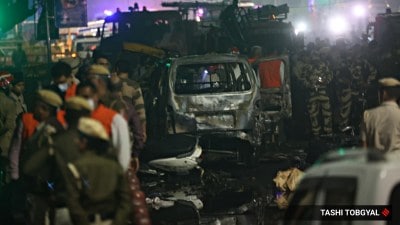A film festival, not a carnival
The 35th International Film Festival of India (IFFI), held on the sands of Panjim’s Miramar Beach, got over last week and the Union min...

The 35th International Film Festival of India (IFFI), held on the sands of Panjim’s Miramar Beach, got over last week and the Union minister of information and broadcasting, Jaipal Reddy, has announced that next year’s festival, too, will be held in Goa. It is, therefore, as good a time as any to assess whether Panjim really works as a permanent IFFI venue. This, incidentally, is a question that is bothering a great number of filmmakers, distributors and producers. Frankly, most of the major filmmakers in the country appear extremely iffy about the proposal.
Despite the enormous hype over the recently-concluded film festival at Panjim, it was clearly a failure on two grounds: in terms of international participation and in terms of business conducted. Eminent international filmmakers as well as distributors and market managers stayed away. As as far as trade was concerned, Panjim did not hold a candle to Delhi which — because of its long association with the festival circuit and its considerable exhibition infrastructure — always did fairly good business. An additional factor that has helped promote international film transactions in Delhi is the presence of numerous embassies and consulates in the city.
In contrast, Goa witnessed a conspicuous absence of international production houses looking to strike deals. The CII-sponsored film market was a virtual flop show from all accounts, registering poor sales. The deputy director of the CII could only cite France’s Carlotta Films, negotiating for films like Sholay and Kal Ho Na Ho, as worthy of note. He failed to confirm if any films from the Indian Panorama section did meaningful business. Others like film baron, Kapil Jani, were more forthright. He slammed the event saying that the film market was so dull that no business activity worth the name could be transacted. As if to drive the point home, Demy Geroe — director of the International Federation of Film Producers Association — who was in Kolkata during 10th Kolkata Film Festival, made the wry comment that Goa cannot be turned into another Cannes since it lacked the “elements of film culture” that Cannes has. She returned home, incidentally, without selling or buying a single film in the Goa film market.
Several Indian filmmakers echoed a similar disappointment. Mrinal Sen, the doyen of Indian cinema, made the memorable observation that “you cannot make a Cannes riviera out of Goa just because it is situated on a beach”. He dismissed the move to Panjim as a politically motivated one by the NDA government and one that had little to do with the promotion of films or a film culture. Film festivals, he stated roundly, should not be confused with “coastal entertainment”. His unhappiness over Goa as the venue was made clear to Jaipal Reddy, when he was in Kolkata last month.
Filmmakers like Tapan Sinha, Adoor Gopalakrishnan, Goutam Ghose, Aparna Sen, Girish Kasaravalli, Nabyendu Chatterjee, and several others, seem to be of a similar persuasion. According to them, the fact that Goa lacks even a minimal film culture is a major factor for why an international film festival held here is bound to fail. It is essentially a holiday destination and, as film historian Amrit Gangar remarked, looked more like “a carnival venue, rather than a film festival venue”.
Looked at any which way, this move from Delhi to Panjim appears as eccentric as Mohammed-bin-Tughlaq’s notoriously misguided move to shift his capital from Delhi to Devagiri, in the Deccan, during medieval times. Why desert Delhi, and the huge infrastructure that has been built up here over the years at tremendous cost, in order to move to a place that is largely clueless about cinema? And to think that the Centre and state governments has already spent about Rs 70 crore and more on this flawed experiment!
Fortunately, Jaipal Reddy has denied the rumour that Goa is to be made a permanent venue for the international film festival. Such a decision would surely have stirred up a hornet’s nest. Buddhadeb Bhattacharjee, the chief minister of West Bengal, has already gone on record to state that if there are plans afoot to make Goa a permanent venue, West Bengal’s case should also be seriously considered, especially since the state continues to reap the highest box-office collections among all the states. The chief ministers of other states, too, will no doubt make similar claims. Perhaps one way out of the mess is to declare Delhi the permanent venue for the international film festival, even while other states are encouraged to hold their own annual festivals.
The writer has been a member of several film festival juries, in India and abroad





- 01
- 02
- 03
- 04
- 05


























